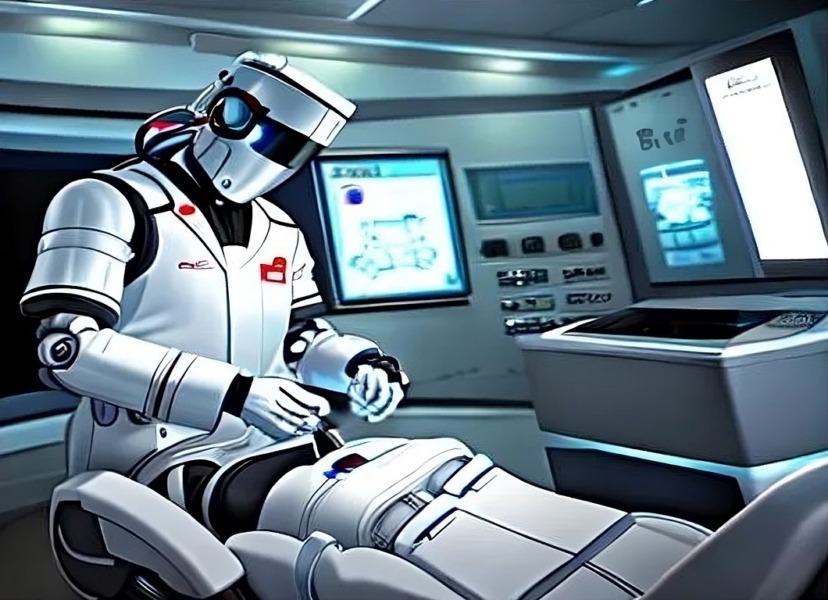From Malpractice to Precision: How AI is Reshaping the Surgical Landscape
- Kingston Bailey
- Technology
- Trending
- June 8, 2023

As advancements in artificial intelligence (AI) continue to reshape various industries, medicine, especially surgery, has experienced significant transformations. With the rapid development of AI within the medical field, it is not unreasonable to consider that relying on AI assistance or fully autonomous AI surgeons could become the new standard. While this notion may seem far-fetched, exploring the potential impact of AI in surgery reveals a future where certain surgeries may no longer be performed solely by humans. However, instead of fearing the replacement of surgeons, it is essential to recognize the need for a symbiotic relationship between AI and humans, adapting to the changing workforce and leveraging AI’s advantages to improve patient outcomes.
Over the years, medical malpractice cases have underscored the need for change within the surgical field. Canada and the United States have witnessed numerous surgical tools left inside patients, leading to severe complications and death. These incidents highlight the fallibility of human surgeons and the potential for errors that can have life-altering consequences for patients. According to a Canadian Medical Protective Association (CMPA) study, medical malpractice claims in Canada have risen steadily over the past decade, with surgical errors accounting for a significant portion of these claims. Similarly, the United States has experienced an increase in medical malpractice claims related to surgical errors, leading to costly settlements and tarnishing the reputation of healthcare providers.
AI technology offers the promise of reducing human error and improving surgical precision. By integrating AI systems into the operating room, surgeons can benefit from real-time data analysis, enhanced imaging capabilities, and augmented surgical tools. For instance, AI can assist in identifying anomalies or potential complications during surgery, enabling surgeons to make more informed decisions and take proactive measures. Additionally, AI-powered robotic surgical systems have been successfully deployed in various procedures, including minimally invasive surgeries, allowing for enhanced precision and improved patient outcomes.
While fully autonomous AI surgeons may sound like science fiction, the rapid progress in AI technology suggests that this transition is plausible in the near or distant future. Robots are inherently more efficient, capable of performing complex tasks with unparalleled accuracy and precision. Moreover, they do not suffer from fatigue, reducing the risk of errors during long surgical procedures. With machine learning and robotics advancements, AI surgeons could continuously learn from vast amounts of medical data, adapting their techniques and optimizing surgical outcomes. However, it is crucial to emphasize that this transition does not render human surgeons obsolete. Rather, it allows surgeons to evolve alongside AI and redefine their roles within the surgical ecosystem.
Rather than fearing the potential replacement by AI, healthcare professionals must focus on adapting to the changing landscape and leveraging AI to their advantage. AI can handle routine tasks, such as data analysis, administrative work, and even precise surgical movements. This frees up human surgeons to focus on more complex decision-making, patient care, and the emotional aspects of medicine that require empathy and human connection. By embracing AI, surgeons can enhance their skills, work more efficiently, and improve patient care.
The successful integration of AI in surgery relies on establishing a symbiotic relationship between AI and human surgeons. AI systems can assist surgeons in preoperative planning, intraoperative guidance, and postoperative monitoring. Surgeons, conversely, provide the critical thinking, clinical judgment, and expertise that AI lacks. This collaboration between human intelligence and AI capabilities can unlock new frontiers in surgical care, leading to safer procedures, reduced complications, and better patient outcomes.
As the use of AI in surgery evolves, it is crucial to address ethical considerations and establish appropriate regulatory frameworks. Transparency, accountability, and patient safety must remain at the forefront of AI integration in healthcare. Developing ethical guidelines, robust training programs, and stringent regulatory oversight will be essential to ensure the responsible deployment and use of AI in surgery.
The advancement of AI technology within the medical field, particularly in surgery, presents both opportunities and challenges. While fully autonomous AI surgeons may seem like a distant concept, it is not unreasonable to consider such a future. The increasing prevalence of medical malpractice cases related to surgical errors underscores the need for change and highlights the potential of AI to improve surgical precision and patient outcomes. By embracing a symbiotic relationship with AI, human surgeons can adapt to the changing workforce and leverage AI’s capabilities to revolutionize surgical care. Integrating AI in surgery promises safer procedures, reduced complications, and enhanced patient care, making it a plausible and exciting prospect for the future of medicine.








